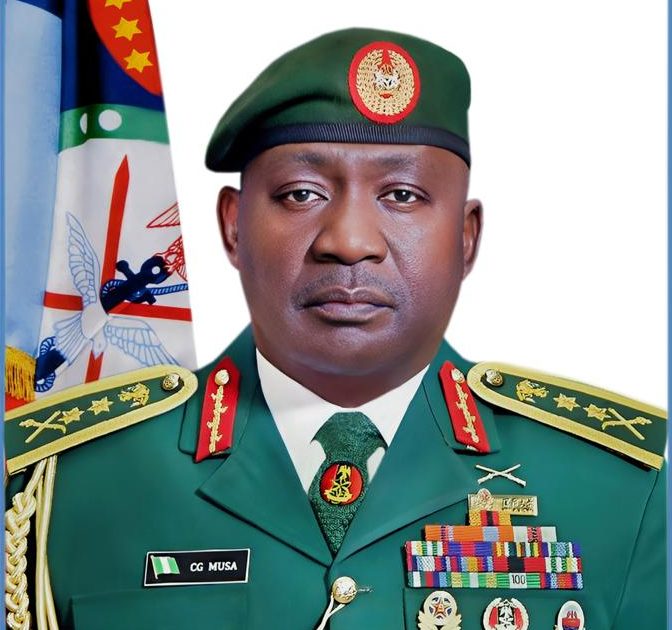The Nigerian military retiree community is intensifying its call for a substantial review of salaries and pensions for both serving personnel and veterans. The veterans argue that the current compensation structure does not reflect the prevailing economic realities and the sacrifices made in service to the nation. This renewed push follows a meeting between the Chief of Defence Staff, Gen. Christopher Musa, and a ministerial committee dedicated to veterans’ welfare. The crux of the veterans’ argument rests on the premise that pension reviews are intrinsically linked to the salaries of active-duty personnel. Therefore, any meaningful adjustment to pension payments must begin with an increase in the salaries of those currently serving. They cite recommendations submitted as early as 2023 that have yet to be implemented, leading to growing frustration and agitation within the veteran community. The retirees emphasize that their demands are not unreasonable, considering the years of service and personal risks undertaken in defence of the country. They seek a pension system that adequately reflects the current cost of living and that honours the sacrifices made by those who dedicated their lives to military service.
Further fueling the veterans’ discontent is a 2017 policy that reduced pensions for personnel medically discharged, often referred to as “boarded” ex-servicemen. This policy has been met with significant resistance, with veterans labelling it as unjust and demanding its reversal. They argue that those who suffered permanent disabilities while serving their country deserve special compensation packages commensurate with the severity of their injuries. This compensation, they believe, should be a one-time lump sum payment tailored to the individual’s specific circumstances and degree of disability. Their rationale is that these individuals have been rendered unable to pursue gainful employment due to injuries sustained in the line of duty, and therefore require substantial financial support to maintain a reasonable standard of living. The demand for special compensation is not merely about financial aid; it is a call for recognition of the profound sacrifices made by these individuals and the lasting impact of their service-related disabilities.
Beyond financial considerations, the veterans are also advocating for greater recognition of their contributions to the nation. They are demanding national honours for both fallen and living ex-servicemen, arguing that if athletes and entertainers can be celebrated with medals and other accolades, then those who risked their lives for the country deserve no less. This call for recognition underscores the veterans’ sense of undervalued service and their desire for a more tangible appreciation of their dedication and sacrifices. They seek a form of acknowledgement that transcends monetary compensation and affirms the significance of their contributions to national security and stability.
In response to these demands, General Musa has acknowledged the veterans’ concerns and initiated dialogue with the ministerial committee. He has directed the Chief of Administration at Defence Headquarters to engage with the committee to formulate workable solutions within a short timeframe. This indicates a willingness to address the veterans’ grievances and suggests a potential pathway towards resolving the long-standing issues related to military pensions and welfare. While the outcome of these discussions remains to be seen, the initiation of a dialogue is a positive step towards addressing the concerns of the veteran community and finding sustainable solutions that recognize their contributions and sacrifices.
Concurrently, President Bola Tinubu has emphasized the need for enhanced continental cooperation in addressing security challenges faced by African nations. Speaking at the maiden African Chiefs of Defence Staff Summit in Abuja, Tinubu, represented by Vice President Kashim Shettima, called for a collective response to threats such as terrorism, cybercrime, piracy, and transnational crime. He advocated for a unified continental defence doctrine based on mutual trust, shared intelligence, and coordinated strategies. This call for collaboration highlights the interconnectedness of security threats across the continent and the need for a joint approach to mitigate these challenges effectively. The President’s remarks underscore the importance of cross-border collaboration and the development of a shared security architecture that leverages the strengths and resources of individual nations to address common threats.
Recognizing the need for sustained engagement, President Tinubu proposed the creation of a permanent African Chiefs of Defence Staff Forum to facilitate ongoing dialogue and coordination. He further urged investment in critical areas such as cyber defence, artificial intelligence, and indigenous military innovation, emphasizing the importance of Africa’s transition from a consumer of technology to a creator. This focus on technological advancement signifies the need for African nations to develop their own defence capabilities and reduce reliance on external sources. The President also paid tribute to fallen soldiers, emphasizing that their legacy should be enshrined in the values and institutions that Africa builds. This acknowledgement serves as a reminder of the human cost of insecurity and the importance of honouring those who have sacrificed their lives in the pursuit of peace and stability. The summit featured other prominent speakers, including representatives from the UN, ECOWAS, and the Nigerian military, all of whom echoed the importance of regional solidarity, technology-driven defence strategies, and African-led solutions to the continent’s security challenges.


